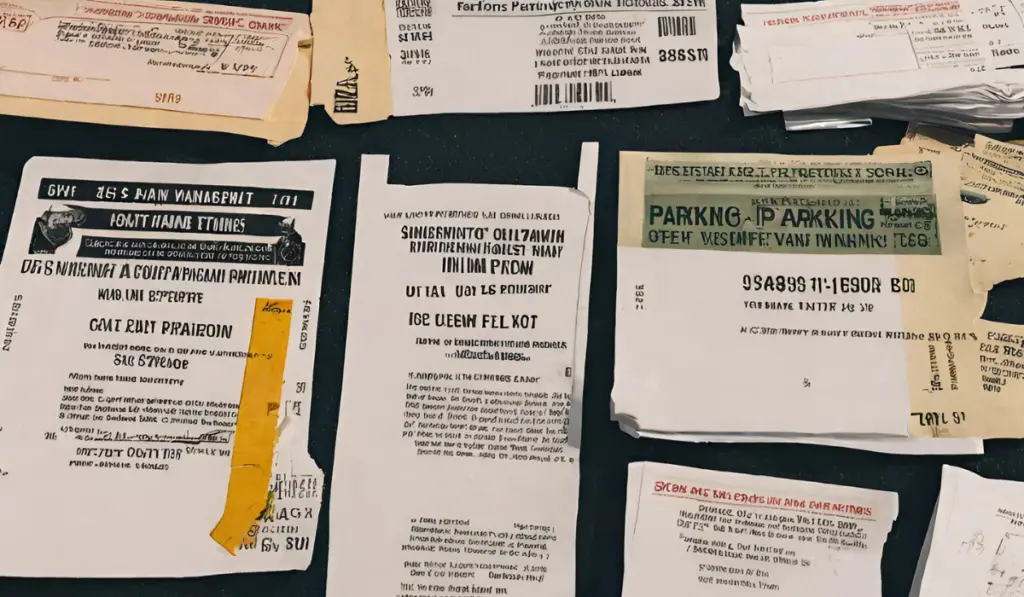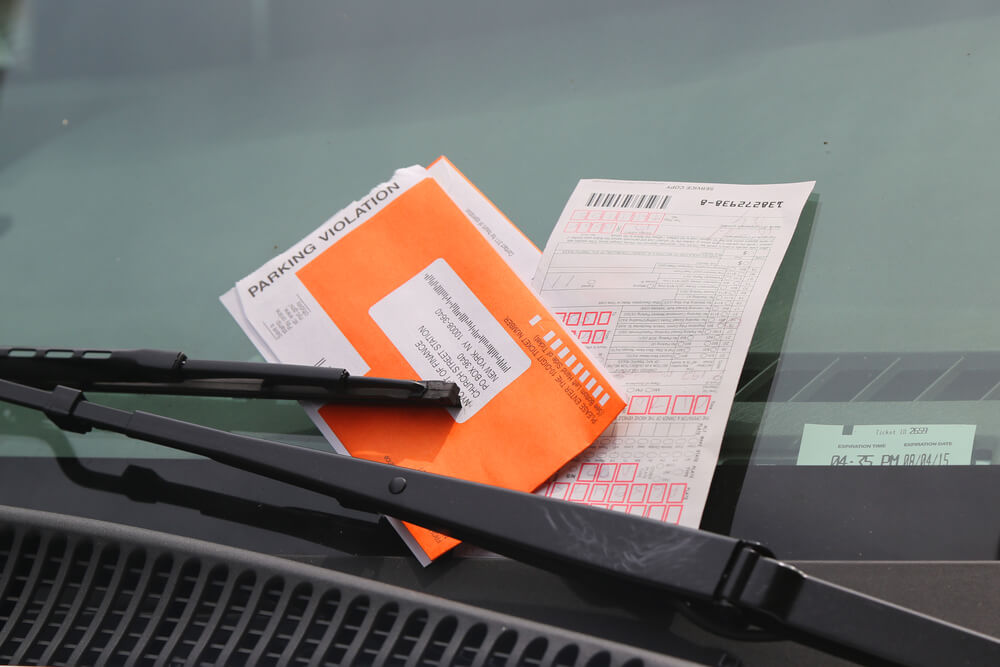In urban areas, parking violations are a common frustration for drivers. The traditional image of a parking ticket being slapped onto a windshield by a vigilant parking enforcement officer is familiar to many. However, with advancements in technology and administrative processes, the way parking tickets are issued and delivered has evolved. One modern convenience—or inconvenience, depending on your perspective—is the possibility of receiving parking tickets in the mail.
Whether you’ve overstayed your welcome in a metered spot or parked illegally in a restricted zone, many municipalities now employ electronic systems to monitor and enforce parking regulations. These systems often include cameras, license plate recognition technology, and online databases to track violations efficiently. As a result, instead of the immediate notice of a physical ticket on your vehicle, you might find a citation arriving at your doorstep days after the infraction.
The concept of receiving parking tickets in the mail raises questions about enforcement accuracy, privacy concerns, and the ease of disputing citations. Understanding how this process works can help drivers navigate parking regulations and avoid unnecessary fines. So, let’s delve deeper into the mechanisms behind receiving parking tickets via mail and what it means for motorists in today’s urban landscape.
Traffic Ticket in the Mail | REVIEW
How Much is an Austin Parking Ticket?
The cost of a parking ticket in Austin, Texas, can vary depending on the specific violation. For example, if you park at an expired meter, you could be fined $30. Parking in a no-parking zone could result in a $40 fine. More serious violations, such as parking within 15 feet of a fire hydrant or blocking a wheelchair ramp, can lead to fines of up to $500.
Additionally, if your vehicle is towed for illegal parking, you may face additional fees for towing and storage, which can significantly increase the total cost. It’s also important to note that these fines may increase if not paid promptly; late payment penalties can add up quickly and potentially double the original fine amount. Therefore, it’s always best to pay for any parking ticke as soon as possible to avoid additional charges.
What Happens If You Don’t Pay a Ut Parking Ticket?

How Much is a Parking Ticket in Texas?
In Texas, the cost of a parking ticket can vary depending on the city or municipality where the violation occurs. Generally, parking fines in Texas range from $20 to $200. However, certain factors, such as the severity of the violation, the location, and whether it’s a repeat offense, can influence the fine amount. For instance, parking illegally in a handicapped spot or blocking a fire hydrant could result in a higher fine compared to overstaying a metered parking spot.
In cities like Houston, parking fines typically start around $30 for minor violations such as expired meters or parking in a no-parking zone. In comparison, more serious violations like blocking a fire hydrant can result in fines of up to $200 or more. Similarly, in Dallas, parking fines range from $35 for minor infractions to $200 for more severe violations. In Austin, parking fines start at $40 for expired meters and can go up to $300 for obstructing traffic or parking in designated zones during restricted hours.
It’s important to note that while these figures provide a general guideline, parking fines can vary significantly across different municipalities within Texas. Additionally, late fees may apply if the ticket is not paid within a specified timeframe. Furthermore, repeat offenders may face increased fines or additional penalties. Individuals should familiarize themselves with the specific parking regulations and fine schedules in their area to avoid unnecessary expenses and legal consequences associated with parking violations.
How Do I Find My Traffic Ticket Online in Texas?
If you’ve recently been issued a traffic ticket in Texas, you may be wondering how to find it online. The process is actually quite simple and can be done in just a few minutes. Here’s a step-by-step guide to help you get started:
1. Go to the website of the court that issued your ticket. Each court has its website, so you’ll need to know which one to visit. If you’re not sure, you can usually find this information on your traffic citation itself.
2. Once you’re on the court’s website, look for a link or section that says “traffic tickets” or something similar. Click on that link, and you should be taken to a page with more information about paying or viewing your traffic ticket online.
3. Follow the instructions on the page carefully in order to pay or view your traffic ticket online. In most cases, you’ll need to enter your ticket number and some other basic information in order to access it. Once you have your traffic ticket pulled up, you can take care of whatever task you need to complete (paying the fine, scheduling a court date, etc.). Finding and accessing your traffic ticket online in Texas is quick and easy when you know where to go and what steps to follow.

Credit: driving-tests.org
City of Austin Parking Tickets
Did you know that the City of Austin issues over 1.5 million parking tickets each year? That’s a lot of tickets! And if you’re one of the unlucky recipients, you may be wondering what to do next. If you’ve received a parking ticket in Austin, you’ll need to pay it within 20 days or risk having your vehicle towed or booted. You can pay online, by mail, or in person at the Parking Violations Bureau. If you choose to contest your ticket, you can do so online, by mail, or in person at an administrative hearing.
If you’re worried about getting a parking ticket in Austin, there are a few things you can do to avoid one. First, make sure to read all signs carefully before parking. Pay attention to time limits and whether or not street sweeping is occurring on the day you plan to park.
Street sweeping happens on certain days throughout the week, and if your car is parked in an area that is being swept, you will likely receive a ticket. Second, download the ParkATX app, which allows users to find and pay for available parking spaces downtown. Finally, consider taking advantage of free and paid public parking garages throughout the city. No one likes getting a parking ticket, but hopefully, this information will help if it happens to you.
Frequently Asked Questions (FAQs)
Can I receive a parking ticket in the mail even if I didn’t see an enforcement officer?
Yes, many municipalities use electronic monitoring systems that can capture parking violations without the presence of a physical enforcement officer. These systems often include cameras and license plate recognition technology.
How long does it typically take to receive a parking ticket in the mail?
The timeframe can vary depending on the municipality and its processing procedures. In some cases, you may receive the ticket within a few days of the violation, while in others, it might take several weeks.
Can I dispute a parking ticket received in the mail?
Yes, you can typically dispute a parking ticket received in the mail through the same channels as traditional tickets. This might involve submitting evidence or appearing at a hearing to contest the citation.
What happens if I ignore a parking ticket received in the mail?
Ignoring a parking ticket received in the mail can lead to additional fines and penalties. In some cases, it could result in the suspension of your vehicle registration or other legal actions.
Are parking tickets received in the mail as enforceable as those placed on my windshield?
Yes, parking tickets received in the mail are just as enforceable as those placed on your windshield. They carry the same legal weight and consequences if left unpaid or unaddressed.
Conclusion
The prospect of receiving parking tickets in the mail reflects the modernization of enforcement methods in urban areas. While it may streamline the citation process and enhance efficiency for authorities, it also introduces new considerations for drivers. Understanding the mechanisms behind mail-delivered tickets is crucial for motorists to navigate parking regulations effectively. Ultimately, whether a parking ticket arrives on your windshield or in your mailbox, it serves as a reminder to park responsibly and adhere to traffic laws. By respecting parking regulations and being mindful of where you park, you can help maintain order on city streets and avoid the inconvenience and expense of parking citations.
